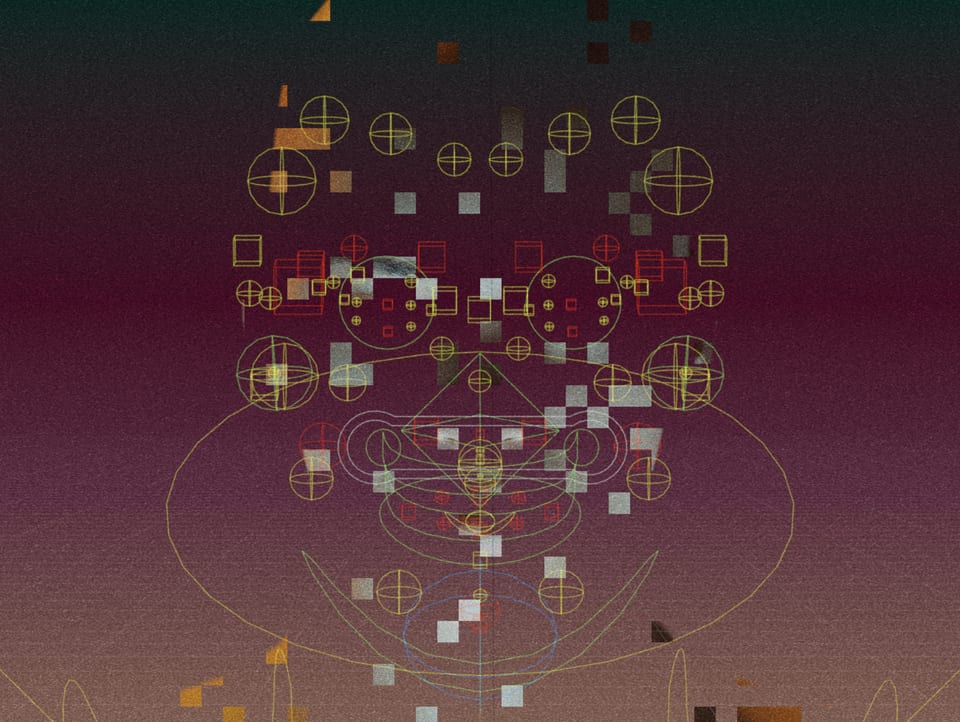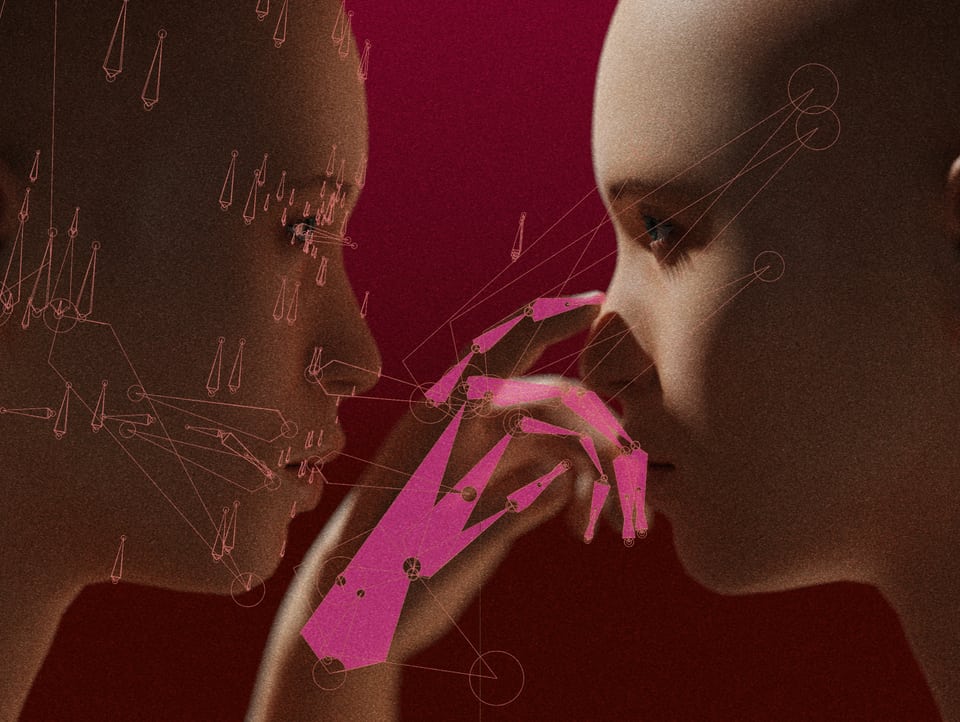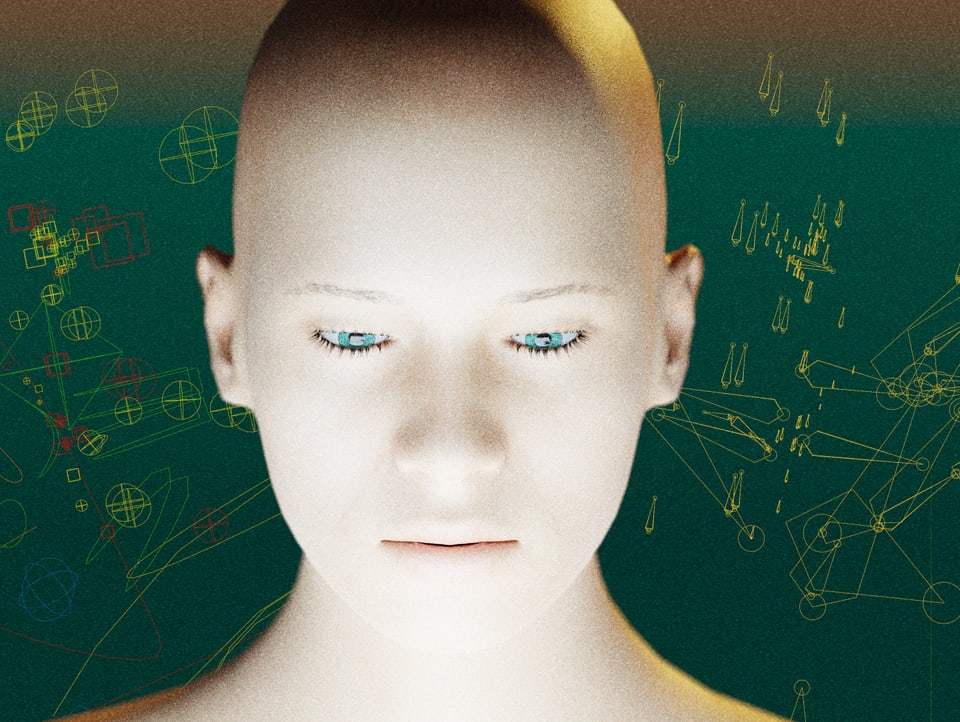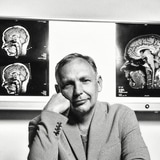The delivery date is after six weeks or months. Then comes a new order, a new team composition, a new topic. Who else is there to identify with? By which? And above all: what for?
Hennric Jokeit, Professor of Neuropsychology, diagnoses the modern working world: “We are in the process of replacing the profession as a long-term, identity-creating domain with a lifelong employer with a job that is increasingly divided into short-term projects.”
For some, it’s full of opportunities, “for others, it’s a loss of stability and promotes stress and anxiety,” says Jokeit.
We should be relieved by progress. Robots came into use with automation in the 1970s and 1980s. The promising narrative at the time was: “The dirty work is now done by machines.”

Legend:
Technological progress has always fueled people’s fear of being replaced soon.
SRF / Simon Krebs
The unstoppable progress promised the certainty that the higher-skilled work would remain for the people, because they could not be replaced by anything.
PCs as time savers and sense robbers
With the advent of computers in all areas of life, it was said that time was saved. That this never came back, many realized late or never. Instead, the hamster wheel simply turns faster. According to Jokeit, computers are “digital prostheses” that enable them to keep up with the hamster wheel.
The consequence of the digitally driven hamster wheel: antipsychotics and antidepressants would be taken “to escape these fears, depressions and compulsions. Then the Ritalin on top to perform.”

Legend:
The pill for in between? Whether antidepressants or Ritalin: the use and abuse of pharmaceuticals has increased rapidly.
SRF / Simon Krebs
It is well known that mental illnesses are increasing despite or because of progress. However, the fact that Jokeit is increasingly reporting patients “around 20 years old with the first burnout” is new. And that doesn’t stop.
Gen Z vs Baby Boomers: What Really Matters?
Of course, not everyone reacts in the same way. Individual differences can be identified, but also differences between the generations: while for baby boomers, for example, the short lifespan of projects is a radical break from what is familiar, Generation Z is born into it.
“They don’t even think long-term anymore,” they don’t align life after work, but the other way around, says neuropsychologist Jokeit about the generation of those born between 1997 and 2010. “For the first time, we no longer have any residents at our clinic who want to work full-time.” That doesn’t say anything about motivation, but it does say something about priorities.
Corona was the fire accelerator.
Before Corona, work was “defined in terms of space and time and also socially,” says Jokeit: “Most of the time I drove to the company to work and met colleagues in the corridor. This localization also led to social ties.” The pandemic has changed that, “Corona was the fire accelerator: We work from home, in the office and on the road”.

Legend:
Computers don’t need people, but people need computers: are digital prostheses a curse or a blessing for us?
SRF / Simon Krebs
This flexibility is equally given in terms of time. “We take care of the children in the afternoon, and we’re back at our desks in the evening.” Everything is flexible or will be made flexible. For many, this abandonment and loss of structure means instability and creates more fear than it makes people happy.
love for life project fellow!
The fact that long-lasting structures are in the process of dissolving is also revealed more and more in our partnerships. The “lifetime companion becomes the project companion”: Instead of marriage, people get together in micro-projects with changing casts. In cities, the divorced or separated are in the majority. Roots in a place with a (school) circle of friends are disappearing more and more, social stabilizers such as club life are gradually decreasing, says Jokeit.
Longer-term stability is being replaced by the primacy of mobility, both geographically and personally: “You have to change, otherwise you won’t keep up” has been the commandment for many years. It used to be no different, but it seemed to roar less loudly.
The (self?)imposed optimization motto “lifelong learning” is a friendly invitation to remain curious and inquisitive. But what if you don’t meet your own professional and social requirements in the long run? What good is knowledge if it shows its expiration date when you acquire it?

Legend:
Are we just surrounded by algorithms – or are we already surrounded by them?
SRF / Simon Krebs
Those who have the resilient ability to deal with stress can cope well with it. Those who need roots or commitment have a harder time. What follows is insecurity, fear of loss, sleep disorders and, in the worst case, the use of medication. The good attitude to life is fading, in short: “We are exhausted beings,” says Jokeit.
AI as the next big stress factor?
The big bang of this new uncertainty is artificial intelligence. In the long run, it will promote competition between man and machine, which means that “the loss of identity-forming work will be seen as a tragedy,” says Jokeit.
In addition, the great hype surrounding the neurosciences has ensured that the pursuit of self-optimization is widespread. As a human being, you have made an effort for years to be optimized, and now something is happening that nobody expected: “Artificial intelligence has awakened. This is an uncertainty from all directions.”
Into the stress zone
In “The Flexible Man”, the American sociologist Richard Sennett describes the absence of long-term thinking and the associated loss of trust and loyalty. Both are important to us because predictability gives us security both privately and professionally.
“The loss of this is an immense stressor and robs us of important resilience factors. That gnaws at us and means that we don’t feel protected, not supported, not secure,” says Hennric Jokeit. You will also have this stress in the four-day week. The crucial point, according to Sennett, is rather whether we rethink and ask ourselves: “What actually makes sense?”
Many things in our fast-moving times have to be defined by people themselves. This applies equally to private and professional matters. You can call that freedom, self-determination and self-organization. Or loss of support, reliability and security.
